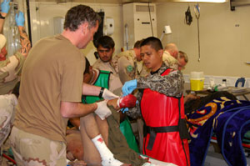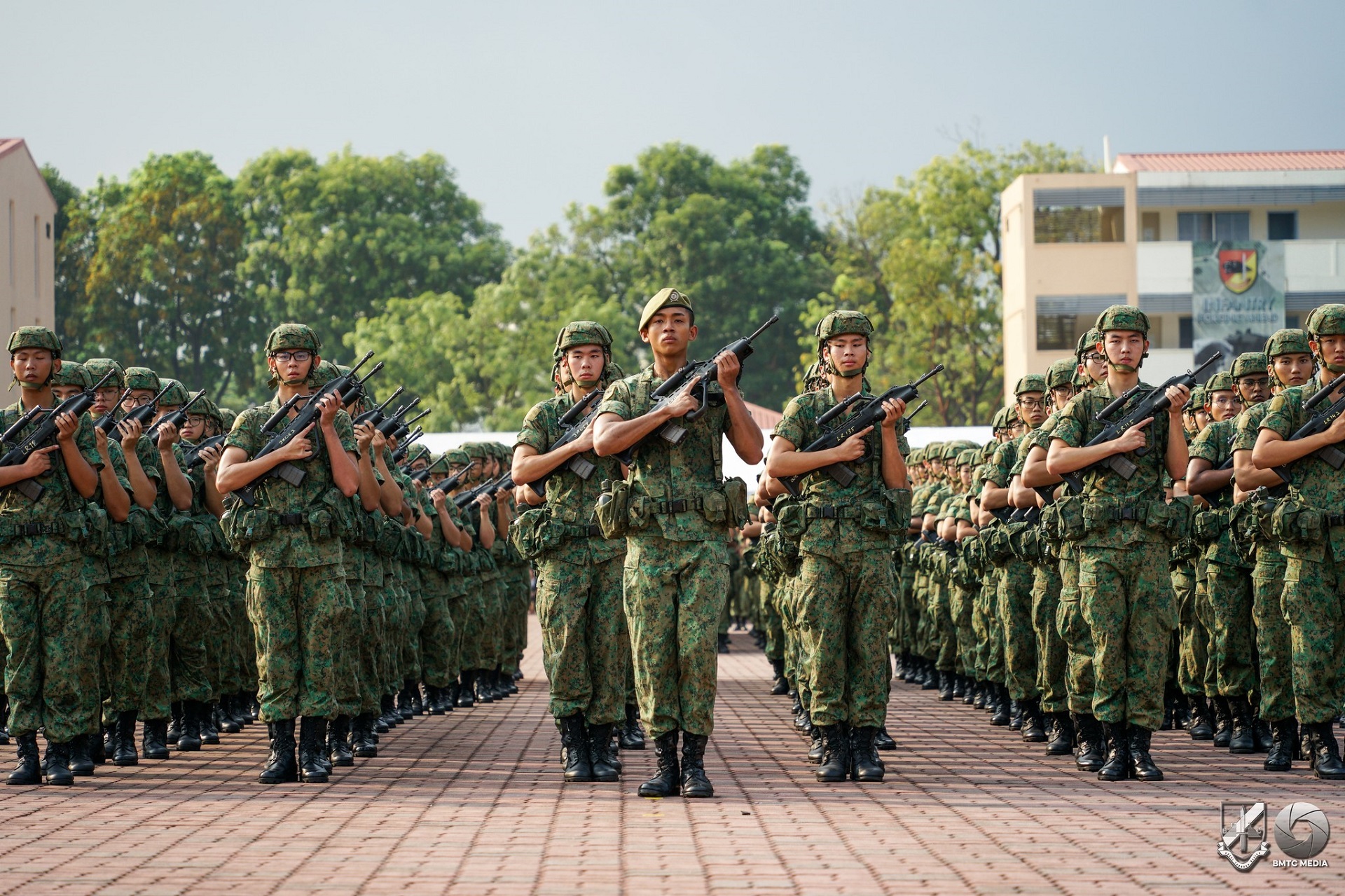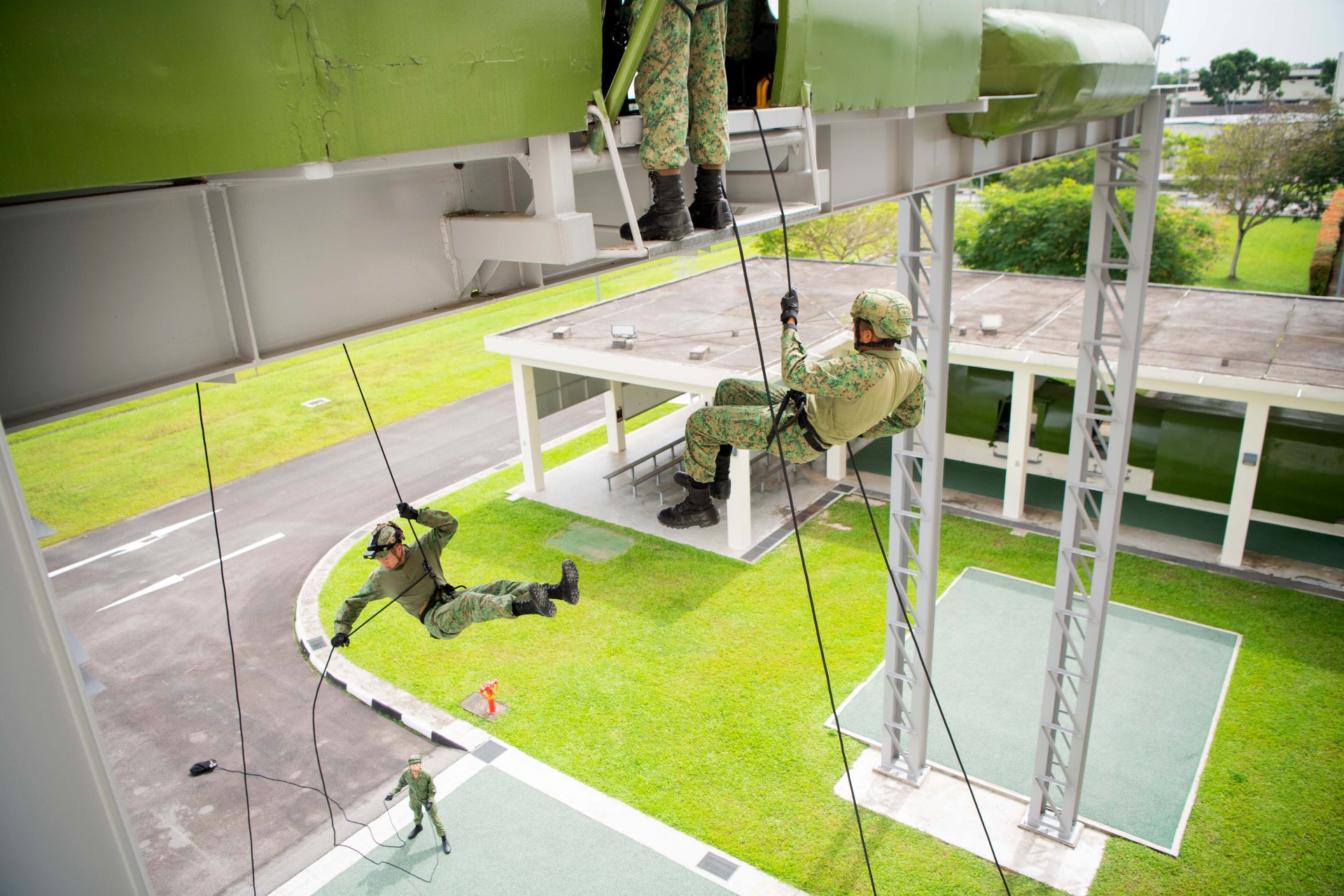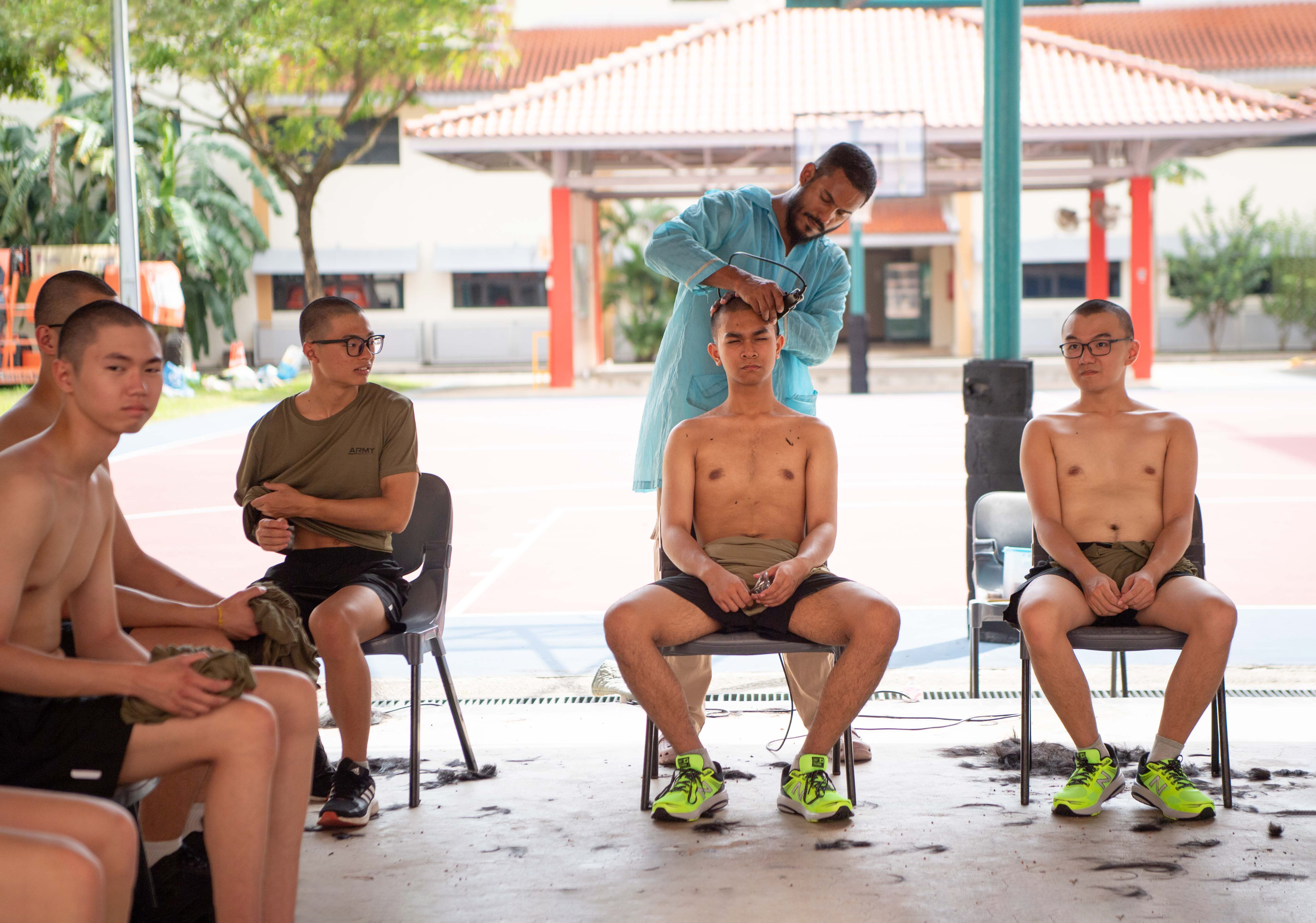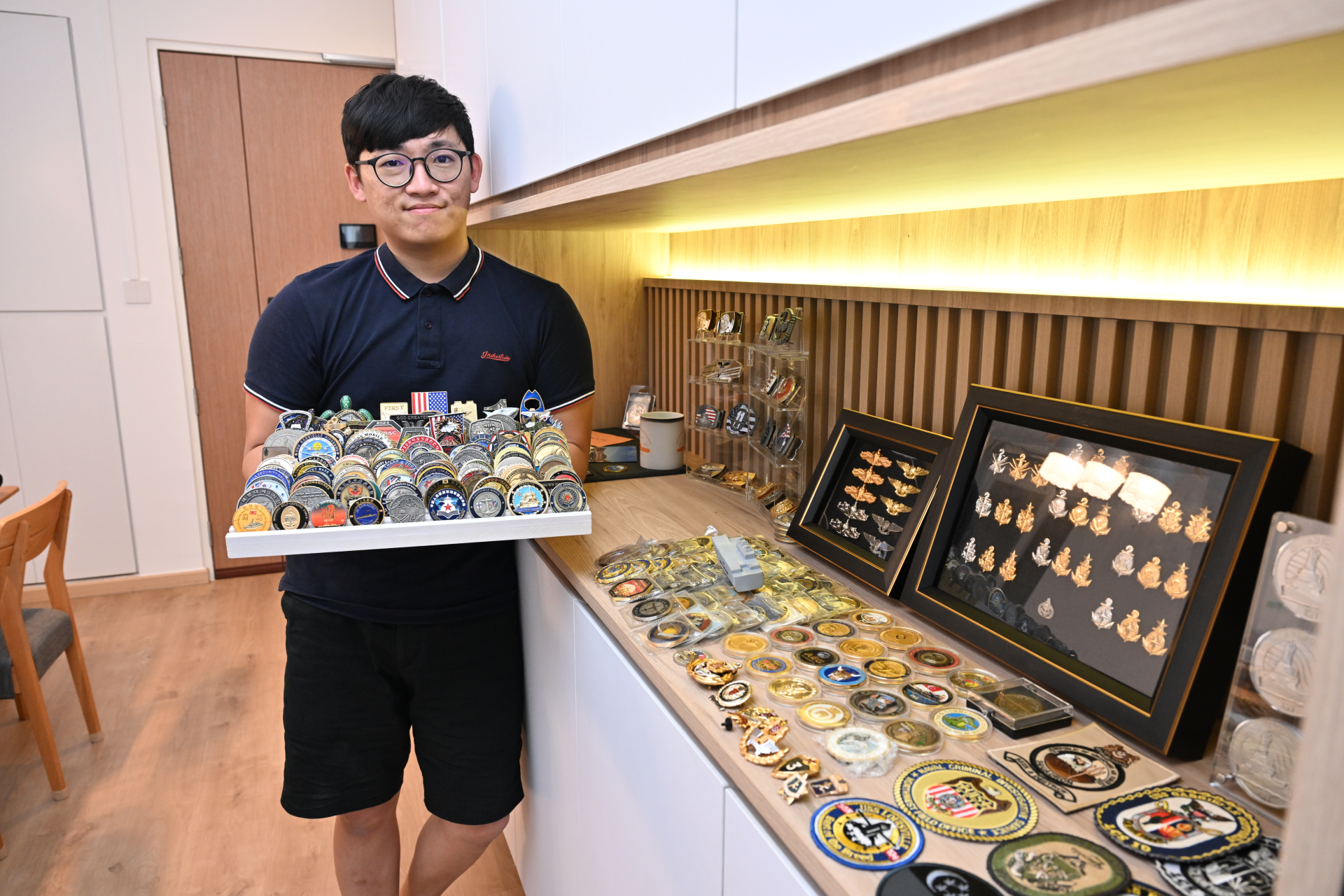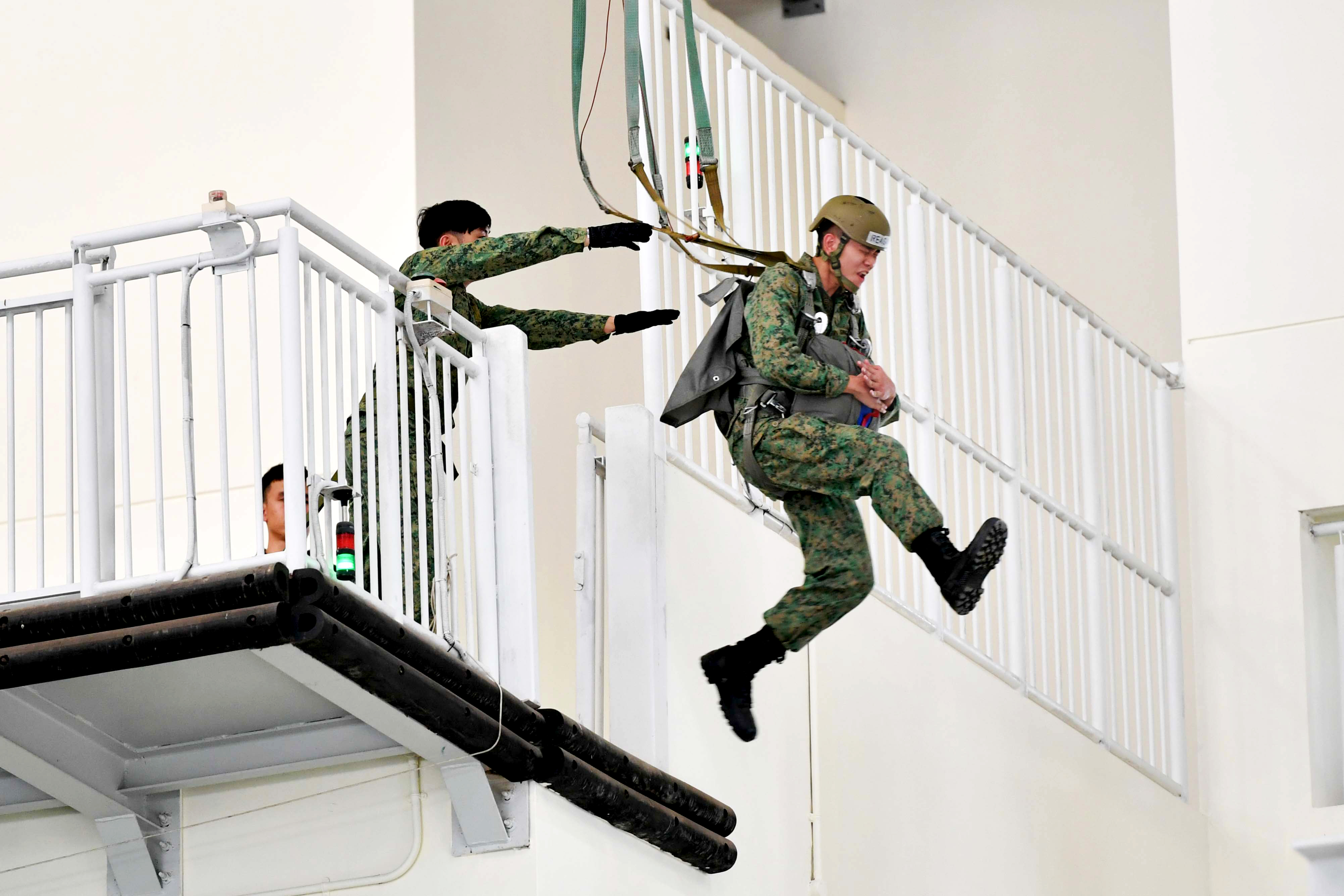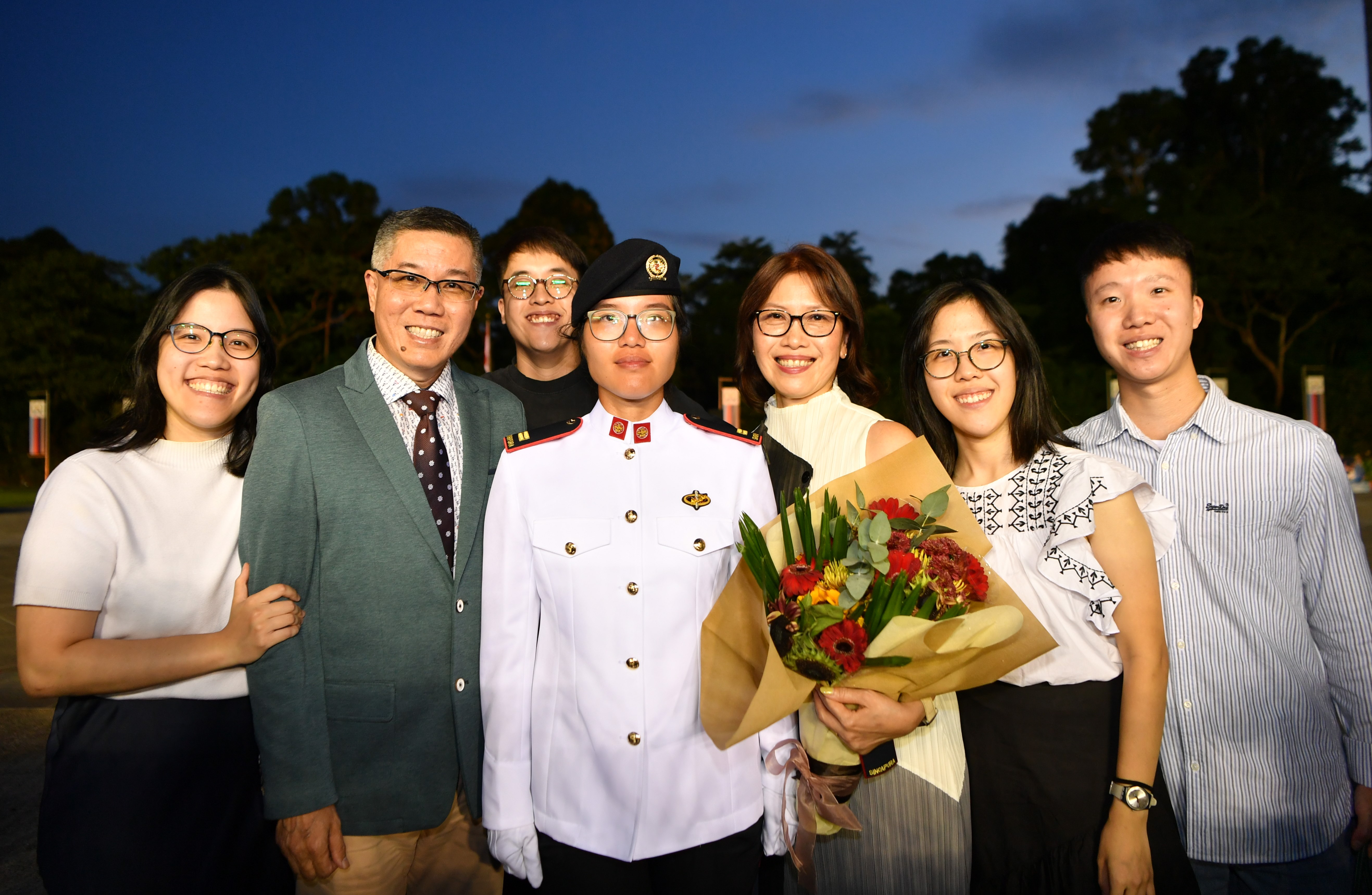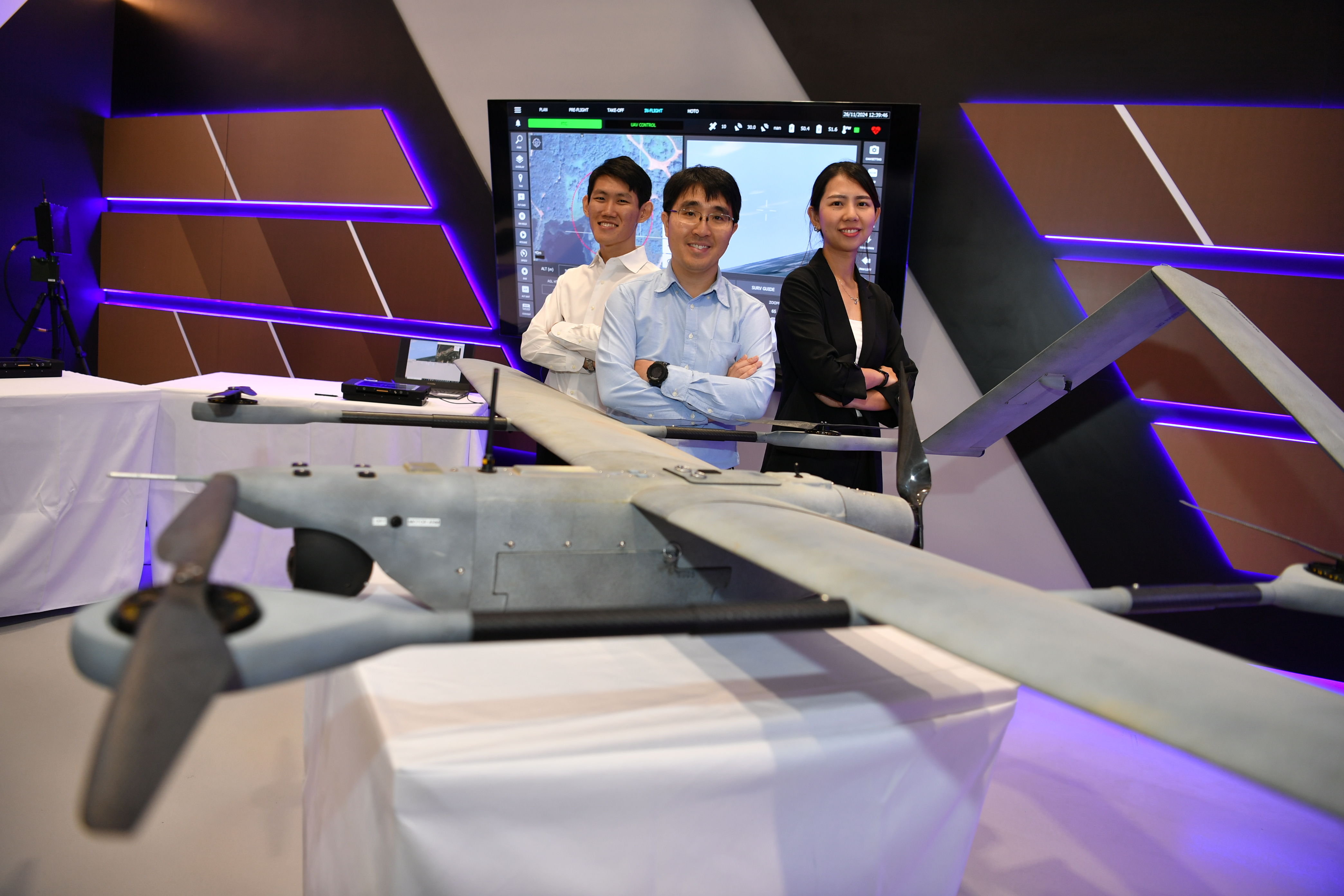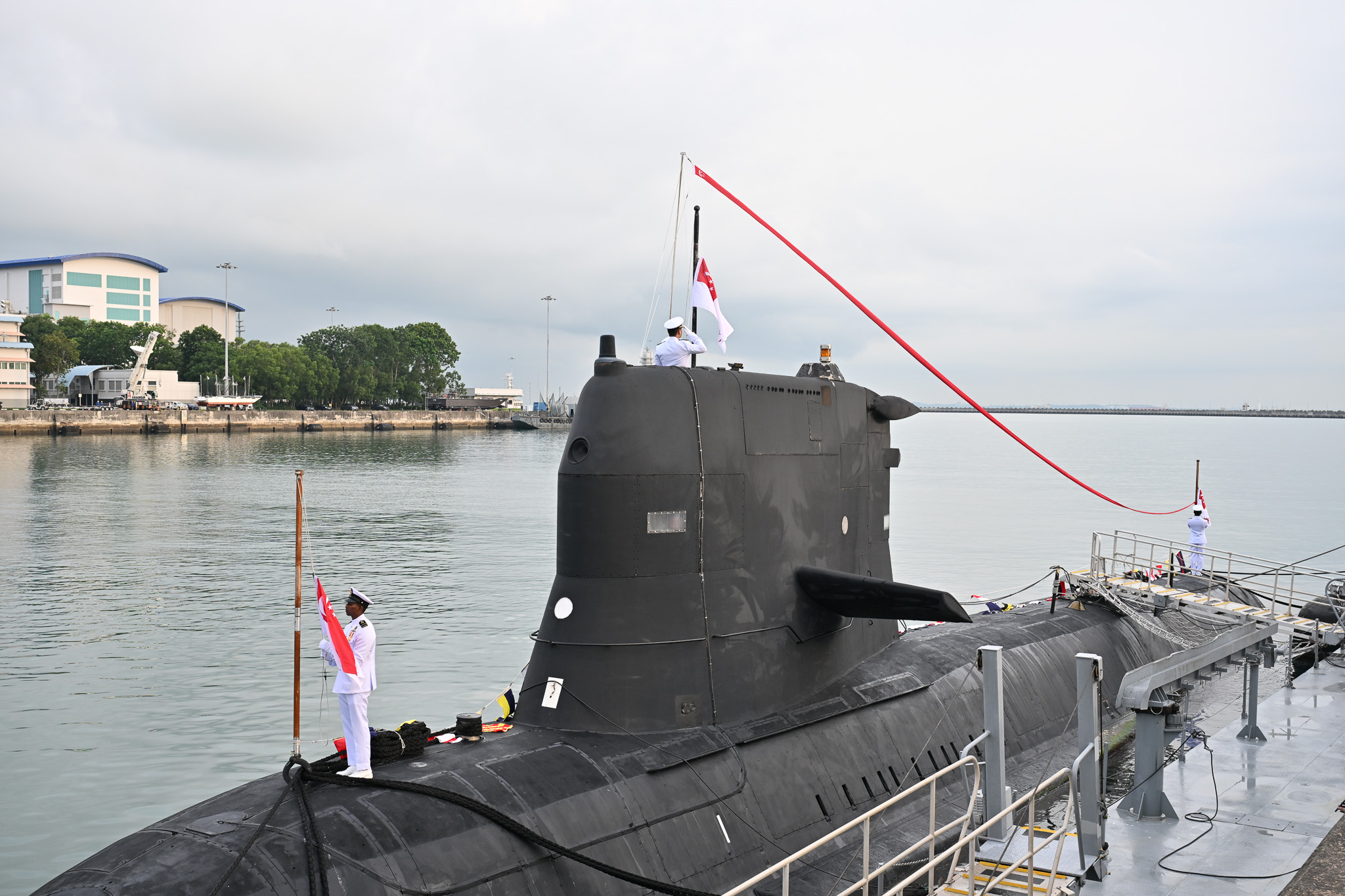CYBERPIONEER - SAVING LIVES IN AFGHANISTAN (MAY 09)
PHOTO // Chai Sian Liang and courtesy of Army
The ability to help others and make a critical difference in their lives is often cited as the most satisfying aspect of being a health-care professional. Indeed, this was the biggest reward for many of the Singapore Armed Forces (SAF) troops who recently completed their tour of duty in the province of Oruzgan in central Afghanistan.
Comprising two rotations over the course of six months from November 2008 to May this year, the team provided emergency room manning, primary health care and ward capabilities at a field hospital at Camp Holland, a base run by the Netherlands Armed Forces in Tarin Kowt, the capital of Oruzgan.
PIONEER speaks to members of the team to find out what it was like operating there.
Raw experience gained
High velocity gun-shot wounds, blast injuries and traumatic amputations resulting from rocket attacks or Improvised Explosive Devices (IEDs). These combat injuries, which are almost never seen in Singapore, were just some of the challenging wounds which the SAF medical team had to treat and manage during their stint in Afghanistan.
Working hand in hand with their Dutch and Australian counterparts, the team treated about 200 casualties that included members of the International Security Assistance Forces (ISAF), Afghan national security forces and local civilians.
Said medical officer Major (MAJ) (Dr) Adrian Tan: "Each patient that comes in is often a problematic case with severe war injuries that demand additional care and attention not seen in wounds at home. Being able to treat such wounds while working in an austere setting like this has definitely been an enriching professional experience."
Similarly, nursing officer 2nd Warrant Officer (2WO) Mazlan bin Mohd Khalid commented that one of his key takeaways from this particular mission was realising the importance of continual learning.
"I've been on other missions before, but the learning journey never ends," he said. "As soldiers in the medical vocation, we are trained to operate in dynamic environments like Afghanistan... and I feel that this mission has validated the effectiveness of our medical training in treating combat wounds like blast injuries and gun-shot wounds."
Besides providing medical support to the ISAF and Afghan troops in Oruzgan, MAJ (Dr) Tan and medic Staff Sergeant (SSG) Terence Yeo also conducted a medical training session for the local medical community at the Regional Health Training Centre in the Afghan province of Bamiyan.
The construction of this two-storey facility was overseen by a construction engineering team from the SAF last year.
"Basically, we focused on things like trauma management to improve their knowledge and proficiency in health care," shared SSG Yeo.
"In Singapore, we tend to take security for granted, but here, children just playing outside their houses can become severely injured."
MAJ (Dr) Lo, citing an instance where the team treated two Afghan children who were injured by an IED
"In an operation such as this, such inherent risks are expected, but the team was well-prepared, both in terms of what to expect and also what to do in order to take care of ourselves."
- LTC Chin, on the danger of indirect fire, citing added precautions such as restricting personnel movement in open areas during the twilight hours when most of the attacks had occurred.
"All the training we went through had became second nature to us... So when the rocket attacks happened, we were able to push away any anxiety to the back of our minds and just focus on the task at hand to save the casualties' lives."
- 1SG Benitez, on what went through his mind during the mostserious rocket attack in April.
Prepared for danger
According to team leader Lieutenant-Colonel (LTC) Kevin Chin, insurgent rocket attacks and the use of IEDs posed the greatest risk to ISAF troops in Oruzgan.
To ensure that all servicemen were equipped with the necessary skills to handle any situation confidently, rigorous pre-deployment training was provided for the team before they left for Afghanistan. The team engaged in a comprehensive training programme which included arms practices, briefings and lectures on recognising threats like IEDs, to additional first-aid training focusing on battle injuries.
In fact, 1st Sergeant (1SG) Brian Benitez, who served as a ward nurse during the mission, shared that they carried tourniquets - a compression bandage used to help check bleeding - as well as a blood-clotting medical product in their pockets at all times, so that they could perform immediate emergency treatment whenever and wherever.
Apart from strict security searches on all visitors and vehicles entering the base, the troops' living quarters were armoured and protected with overhead shelters, which are able to withstand indirect fire like rocket attacks.
During the six months, there were several instances of rocket attacks. The most serious of these rocket attacks occurred in April and resulted in one fatality and several Dutch soldiers injured.
Close bonds
Serving in an overseas deployment often means being far away from home for several months. For 1SG Alfatah Abdul Karim, having to part with his family was an especially difficult decision as his daughter was only about two months old when he left.
But regular communication over satellite phones and through the Internet helped him stay in touch with his family.
"Reading my wife's e-mails and looking at the photos that she took of our daughter was something that I looked forward to at the end of every day," shared 1SG Alfatah.
A live video-conferencing session was set up on 2 May, giving the second rotation team a much appreciated opportunity to chat with their loved ones back home. On top of that, the SAF Film Unit recorded short video clips of each family, which were delivered to Afghanistan as a special surprise for the troops.
The team also received a pleasant surprise in the form of postcards made by the young students of St Stephen's School. "We were really touched when we read the words of encouragement from the kids in Singapore, and it was a great morale booster," said 1SG Benitez.
Tight bonds forged within the SAF team, as well as with their Dutch and Australian counterparts, also helped to keep spirits high throughout the deployment.
"The teams were like each other's family there, and the common experiences we shared brought us all much closer together," noted 1SG Alfatah.
Commitment to peace
All 39 members of the SAF medical deployment to Oruzgan were among the 44 servicemen who received the SAF Overseas Service Medal from Deputy Prime Minister and Minister for Defence Teo Chee Hean on 3 Jun.
Reiterating the need for Singapore to do its part in international security operations, Mr Teo stressed that multinational peace support initiatives will continue to be an important part of the SAF's operations.
He added: "Given the increased rocket attacks in Afghanistan, we are prepared to deploy a Weapon Locating Radar (WLR) team to Tarin Kowt in Oruzgan province, to provide early warning of rocket attacks and enhance force protection measures of the ISAF personnel deployed in the base there. If the deployment of the radar is considered useful, the WLR detachment can be deployed for between nine and 12 months from the later part of this year."
Other useful contributions being explored include the deployment of a KC-135R tanker refuelling aircraft and an Unmanned Aerial Vehicle task group in support of the multinational stabilisation and reconstruction efforts in Afghanistan.
